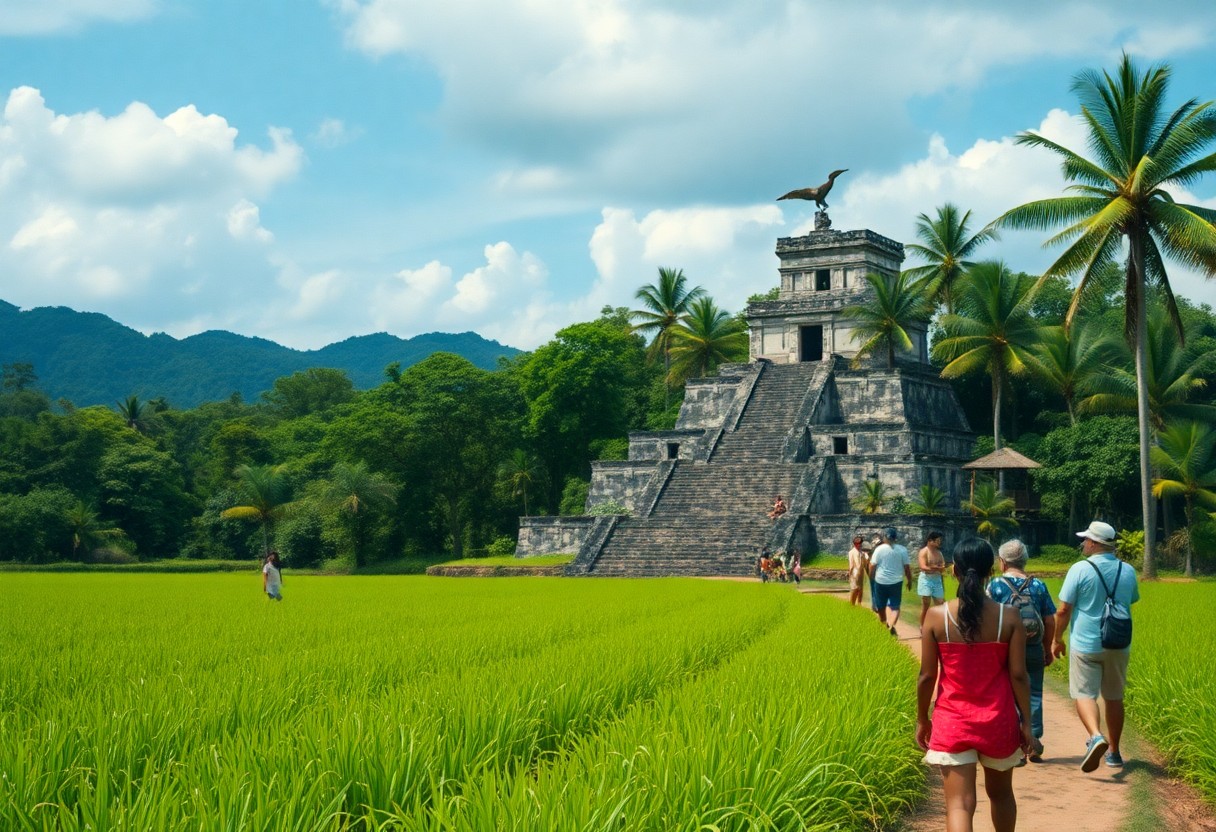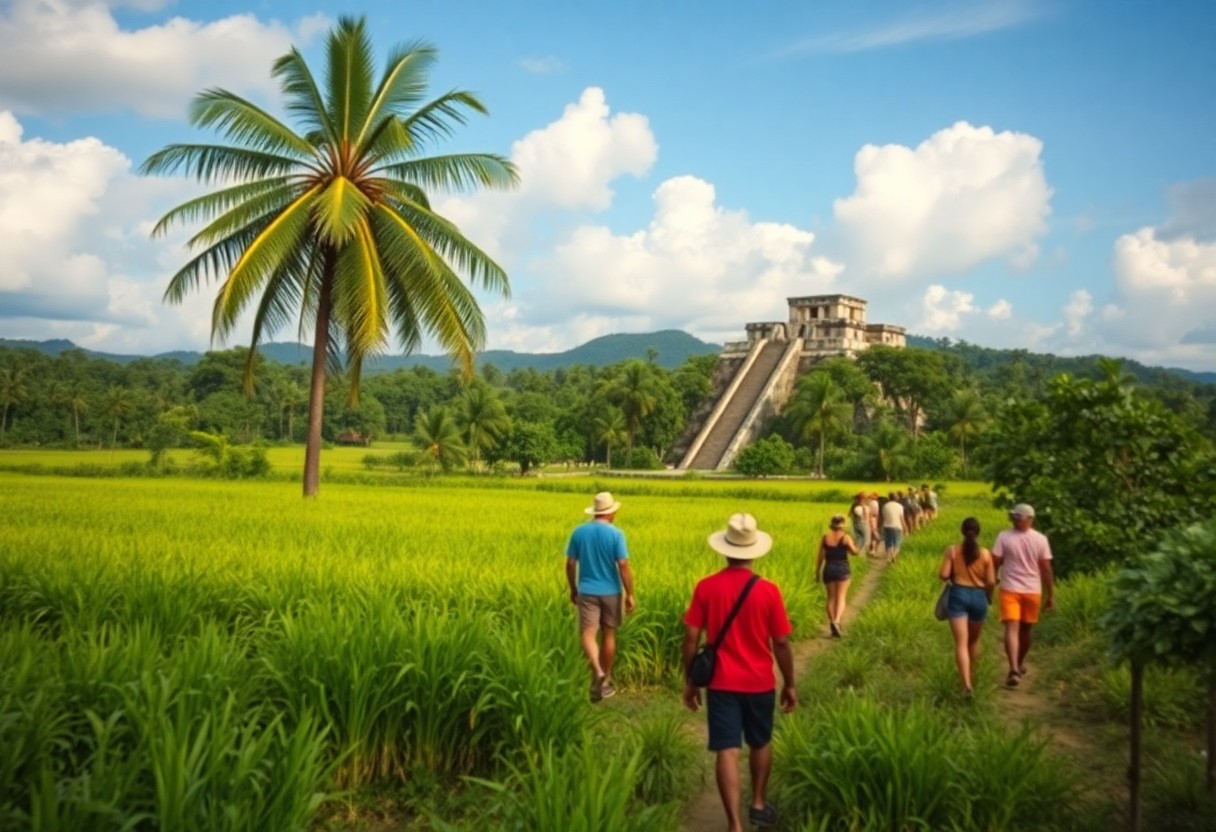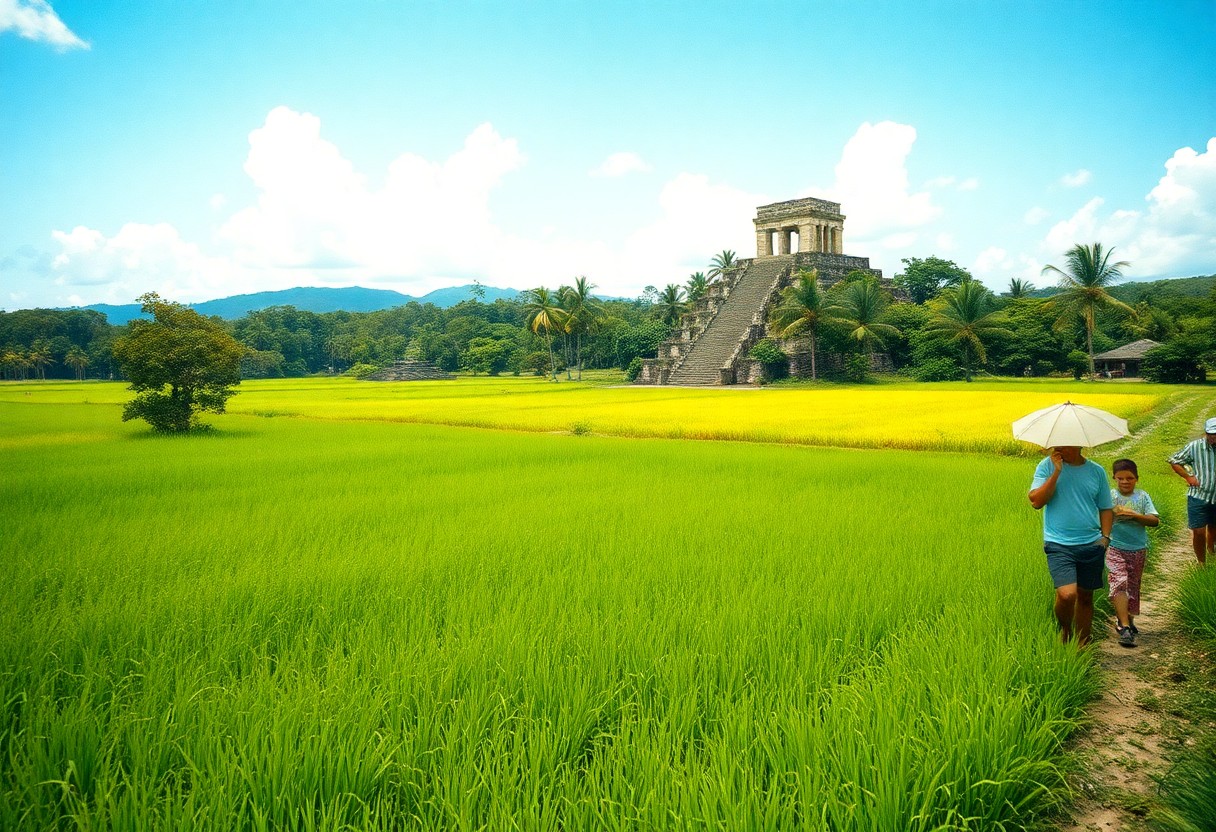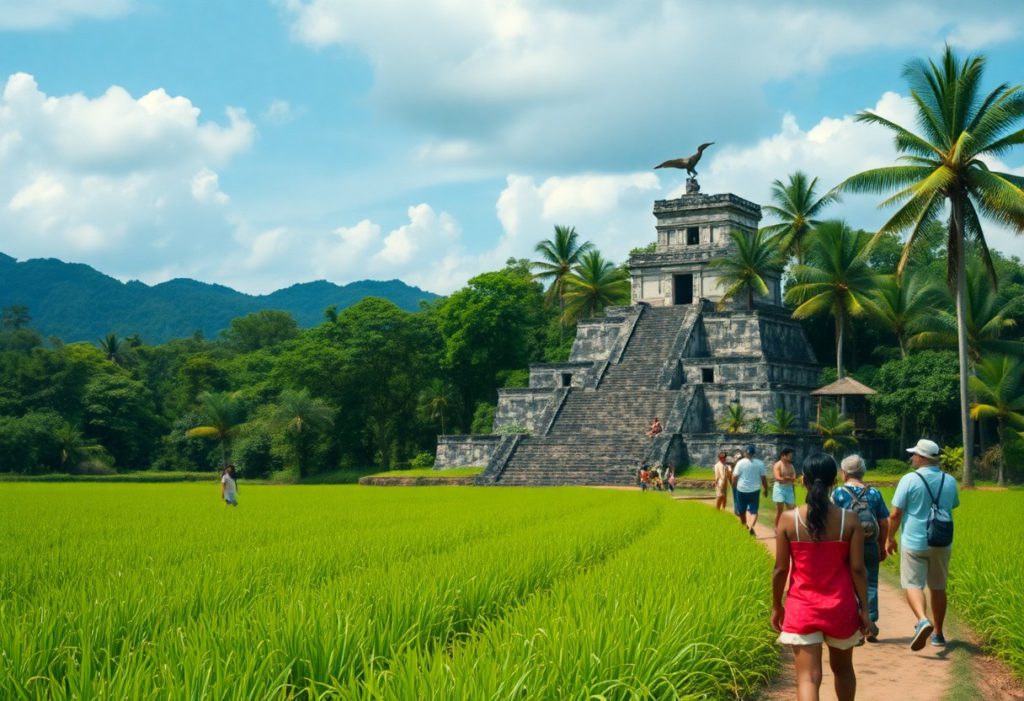The economic landscape of Belize is a crucial aspect that significantly influences the national framework, showcasing a vibrant economic ecosystem that is evolving from traditional sectors to innovative sustainable industries. At the heart of Belize’s economic infrastructure lies a robust foundation in agriculture, with key crops such as sugar, bananas, and citrus fruits playing vital roles in the country’s early development. Recently, the rise of ecotourism has emerged as a transformative economic opportunity, reshaping the financial landscape of the nation. As you delve into the economic evolution of Belize, you will recognize how the country strategically harnesses its pristine natural environment to draw global investors and tourists, crafting a distinctive economic model that harmonizes environmental conservation with economic expansion. Gaining insight into these dynamic transitions will foster a deeper appreciation for Belize’s steadfast dedication to economic sustainability.

Discovering the Intricate Economic History of Belize
The economic framework of Belize has been intricately shaped over centuries by multifaceted colonial influences and extensive natural resource exploitation. The roots of the region’s economic history can be traced back to the impact of the indigenous Maya civilizations, which laid the groundwork for subsequent developments. Later on, British colonial powers transformed the territory into a resource-extraction economy, where British settlers, known as Baymen, initially focused on valuable timber extraction and established trade networks that drastically altered Belize’s economic foundations. This significant colonial era set the stage for the economic transformations that followed, creating a solid basis for modern economic activities.
Understanding the Historical Importance of Logging in Belize
In the 18th and 19th centuries, the extraction of mahogany and logwood became pivotal to Belize’s economic identity. It is evident that these valuable timber resources attracted British entrepreneurs who established extensive logging camps and advanced extraction techniques. The logging sector emerged as a dominant economic force, creating a robust international trade network that positioned Belize as a key timber exporter within the Caribbean region. This dynamic not only propelled economic growth but also laid a solid foundation for future commercial endeavors, highlighting the historical significance of logging to Belize’s economic development.
Highlighting the Rise of Sugar and Bananas as Economic Pillars
Between the late 19th and early 20th centuries, agricultural commodities began to rise in importance as essential economic sectors for Belize. It becomes clear that sugar and banana production eventually eclipsed logging as the primary economic activities within the region. These crops transformed into vital export commodities, fundamentally altering agricultural landscapes and creating new economic possibilities for local farmers and international traders alike. A detailed exploration of Belize’s agricultural evolution unveils a complex economic transformation, where sugar production gained critical importance, leading to the establishment of large plantations that utilized advanced cultivation techniques. The banana industry also flourished, evolving into a major export sector that generated significant economic opportunities. Major international corporations, such as Fyffes, played a crucial role in cultivating banana plantations, which subsequently became a primary source of foreign exchange for the nation.

The Remarkable Growth of Belize's Tourism Sector
As you investigate the economic transformation of Belize, it becomes apparent that tourism has evolved into a central economic driver. This sector has experienced rapid growth, attracting international visitors with its diverse landscapes and rich cultural experiences. Currently, tourism contributes approximately 40% of the nation’s GDP, marking a significant shift away from the traditional agricultural economy towards a more varied economic framework. The government has strategically positioned Belize as a premier travel destination for tourists seeking genuine and sustainable experiences, leveraging its natural beauty and cultural richness to enhance its appeal.
Diving into the Surge of Eco-Adventures in Belize
Between 2010 and 2019, Belize experienced an extraordinary boom in eco-tourism, reflecting the growing global demand for sustainable travel practices. You will find that adventure travelers are increasingly captivated by the country’s unspoiled rainforests, diverse wildlife reserves, and significant archaeological sites. Sustainable tourism practices have become integral to Belize’s tourism strategy, drawing eco-conscious visitors who seek meaningful interactions with nature and local communities, ultimately enriching their appreciation for both the environment and local cultures.
Unveiling Opportunities in Reef-Based Tourism
The tourism sector along Belize’s picturesque coastal regions has dramatically transformed the economic landscape. You will be captivated by the Belize Barrier Reef, a UNESCO World Heritage site that attracts marine enthusiasts from around the globe. Activities such as diving, snorkeling, and marine exploration have emerged as crucial revenue generators, drawing thousands of international tourists each year. This iconic reef stretches approximately 300 kilometers and showcases one of the most diverse marine ecosystems globally. Marine tourism generates over $180 million annually, providing essential support to local communities and conservation initiatives. The reef’s ecological importance and immense tourism potential make it an invaluable economic asset, attracting marine biologists, conservationists, and adventure seekers alike.
Here’s the content for the chapter and subsections:
Addressing Economic Challenges Confronting Belize
While Belize faces significant economic challenges that hinder its development, you will encounter a complex array of issues, ranging from structural limitations to external pressures. The nation grapples with obstacles such as limited economic diversification, high unemployment rates, and vulnerability to global economic fluctuations, all of which restrict its potential for sustained growth and prosperity. Recognizing these challenges is essential for understanding the comprehensive scope of Belize’s economic landscape.
The Persistent Challenge of National Debt in Belize
Throughout Belize’s economic history, national debt has consistently presented a substantial challenge. You will notice that the country bears one of the highest debt-to-GDP ratios in the Caribbean, which severely restricts the government’s capacity to invest in vital infrastructure and social programs. This financial burden significantly obstructs economic expansion and deters potential international investments, underscoring the urgent need for effective fiscal strategies to manage the nation’s economic obligations.
The Risks Posed by Natural Disasters on Economic Stability
On the environmental front, you will find that Belize is particularly susceptible to climate-related disruptions. Natural disasters such as hurricanes, tropical storms, and flooding pose considerable threats to both the agricultural and tourism sectors, leading to recurring economic setbacks and necessitating substantial reconstruction investments. A closer examination reveals that natural disasters entail consequences that extend beyond immediate economic damage; they create long-term vulnerabilities that disrupt agricultural productivity, damage critical infrastructure, and undermine the tourism industry. The coastal regions are especially at risk, with rising sea levels and increasingly severe storms threatening the stability of both the economy and local communities.

Analyzing Belize's Dependence on Imports in its Economy
To fully comprehend Belize’s economic framework, it’s vital to acknowledge its considerable reliance on imports. With limited domestic manufacturing capabilities, you will find that the country heavily depends on importing essential goods such as machinery, fuel, and consumer products. This economic vulnerability reveals that nearly 50% of consumed goods are sourced from external markets, primarily the United States. While this reliance on imports presents challenges for local economic stability, it also highlights Belize’s interconnected global trade relationships. These imports are crucial for supporting the nation’s infrastructure, fostering technological development, and meeting consumer demands.
Envisioning the Future: Economic Prospects for Belize
Despite the economic hurdles encountered by Belize, the nation is strategically positioning itself for transformative growth through diversification and innovative economic strategies. You will observe that the country is leveraging its natural resources, promoting sustainable tourism, and enhancing digital infrastructure to create new economic opportunities. Belize’s potential lies in its ability to integrate traditional sectors like agriculture with emerging industries such as technology and eco-friendly services, which promise to bolster economic resilience and attract global investment.
Advocating for Sustainable Initiatives in Belize
Belize is increasingly prioritizing environmental preservation alongside economic development. You can observe the government’s commitment to green initiatives, including renewable energy projects, conservation-focused tourism, and sustainable agricultural practices. These efforts aim to safeguard the country’s rich biodiversity while forging economic pathways that promote both ecological integrity and community advancement, propelling Belize toward a more sustainable future.
Encouraging Foreign Investment to Stimulate Economic Growth
In conjunction with these economic strategies, Belize is actively pursuing international investors across various sectors. You will notice targeted initiatives in tourism, agriculture, and emerging digital industries that promise attractive returns and strategic partnerships. The government is implementing investor-friendly policies designed to position the country as an enticing destination for global capital. Belize presents unique investment opportunities across sectors such as eco-tourism, renewable energy, and agricultural technology. The nation’s strategic location, combined with progressive economic policies, enhances its attractiveness as an investment hub. Potential investors are drawn to Belize’s stable political climate, tax incentives, and commitment to sustainable development, which help mitigate traditional investment risks while offering promising long-term growth prospects.
Reflecting on the Economic Transformation of Belize
In light of these observations, it becomes apparent how Belize has skillfully transitioned its economic landscape from traditional agriculture to a multifaceted, sustainable model. Your understanding of the country’s economic evolution reveals a dynamic shift toward services, tourism, and ecotourism. By effectively leveraging its natural resources and rich biodiversity, Belize has established a resilient economic framework that balances growth with environmental stewardship. You will come to appreciate how the nation has successfully diversified its economic sectors, positioning itself as an attractive destination for international investment and sustainable development. This adaptive strategy ensures that Belize continues to cultivate a robust and forward-looking economic vision.
Frequently Asked Questions about Belize's Economic Landscape
Q: What are the primary economic sectors that drive Belize’s growth?
A: Belize’s economy is chiefly supported by three fundamental sectors: agriculture, tourism, and services. Agricultural exports such as sugar, bananas, and citrus fruits significantly contribute to national income. The tourism industry, particularly ecotourism, generates considerable revenue by capitalizing on Belize’s diverse natural landscapes and rich marine ecosystems. Additionally, service industries, including financial services and international trade, further enhance these essential economic drivers.
Q: How does ecotourism play a role in Belize’s economic growth?
A: Ecotourism serves as a vital economic pillar for Belize, attracting international visitors eager for sustainable travel experiences. The Belize Barrier Reef, UNESCO World Heritage sites, and extensive national parks provide unique opportunities for eco-conscious travelers. This sector not only generates direct income through tourism spending but also supports local communities by creating jobs in conservation, hospitality, and guided expedition services.
Q: What are the key challenges Belize faces in maintaining economic stability?
A: Belize grapples with various economic challenges, including vulnerability to external economic fluctuations, the impacts of climate change on agriculture, and reliance on a limited range of export commodities. In response, the nation is actively diversifying its economic portfolio by investing in renewable energy initiatives, expanding service sectors, and promoting sustainable tourism development. International collaboration and strategic economic policies are crucial in mitigating potential financial risks and strengthening long-term economic resilience.
The Article Belize’s Economy Explained: From Agriculture to Ecotourism appeared first on Belize Travel Guide
The Article Belize’s Economy: Agriculture to Ecotourism Insights Was Found On https://limitsofstrategy.com
The Article Belize’s Economy Insights: From Agriculture to Ecotourism First Appeared ON
: https://ad4sc.com


